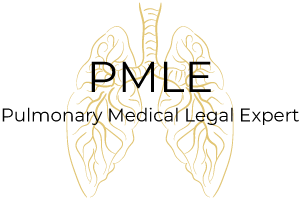What is a Pulmonary Medical Legal Expert?
A pulmonary medical legal expert is a professional who melds in-depth medical knowledge of pulmonary conditions with requisite legal acumen, thereby providing vital expertise in legal contexts. Typically, these professionals possess advanced medical degrees with a specialization in pulmonology, coupled with formal legal training or extensive experience in medico-legal settings. Their unique skill set positions them as essential contributors to cases where respiratory ailments or lung-related issues are under scrutiny.
The qualifications required for one to become a pulmonary medical legal expert are rigorous. A strong foundation in medical education, predominantly focusing on respiratory systems, is paramount. This generally includes completing medical school followed by a residency in pulmonology. Further specialization through fellowships in pulmonary medicine or critical care might also be pursued. Alongside medical qualifications, these experts often undertake legal training programs or possess substantial experience in medico-legal consultations, which equip them with the legal know-how necessary for their role.
Pulmonary medical legal experts are frequently called upon in a variety of legal scenarios. In medical malpractice cases, their evaluation of clinical care provided for respiratory conditions can be crucial. They play a significant role in workers’ compensation claims, particularly where occupational lung diseases like asbestosis, silicosis, or chronic obstructive pulmonary disease (COPD) are concerned. Personal injury lawsuits involving respiratory illnesses, including those resulting from environmental exposures or accidents, also necessitate their specialized insights to assess injury causation and extent.
Pertinent skills and knowledge areas for a pulmonary medical legal expert include a comprehensive understanding of pulmonary physiology, respiratory diseases, diagnostic methods, and treatment protocols. Additionally, they must be adept at interpreting medical records and articulating complex medical information in legal terms. This involves producing clear, concise, and objective expert witness reports and testifying in court with a balanced perspective that bridges the gap between medical facts and legal nuances. Their contributions are pivotal in ensuring informed decision-making in legal matters encompassing pulmonary health issues.
The Role and Responsibilities of a Pulmonary Medical Legal Expert in Legal Proceedings
Pulmonary medical legal experts play a pivotal role in the intersection of healthcare and law, where their extensive knowledge of respiratory conditions becomes instrumental in legal proceedings. Their primary responsibility is to meticulously evaluate medical records to ascertain the veracity of claims related to respiratory health issues. This crucial task involves a thorough review of patient histories, diagnostic test results, and treatment records to construct a clear and accurate medical narrative.
Beyond evaluating existing records, these experts often conduct independent medical examinations (IMEs). These examinations are essential for providing an unbiased assessment of a patient’s condition, offering a comprehensive understanding of the respiratory issues in question. The findings from these IMEs can significantly influence the direction and outcome of a case.
In the courtroom, pulmonary medical legal experts serve as vital witnesses, providing expert testimony that bridges the gap between complex medical concepts and legal arguments. They interpret clinical data in a manner that supports or refutes claims, assisting the court in understanding the medical nuances of the case. Their ability to convey intricate medical information clearly and succinctly to judges, juries, and legal professionals is crucial for ensuring informed deliberations and verdicts.
The credibility of pulmonary medical legal experts hinges on their commitment to impartiality and ethical standards. Their analyses and testimonies must be unbiased, as any perception of partiality can undermine the integrity of the legal process. Ethical considerations are paramount, guiding these experts in maintaining objectivity and fairness throughout their involvement in a case.
Case studies provide tangible examples of the impact pulmonary medical legal experts have on legal decisions. For instance, in cases involving occupational lung diseases such as asbestosis or silicosis, these experts have been instrumental in demonstrating the causative links between workplace exposure and respiratory conditions, influencing both settlements and court judgments. Their expertise ensures that legal conclusions are grounded in sound medical reasoning, ultimately upholding the principles of justice.
